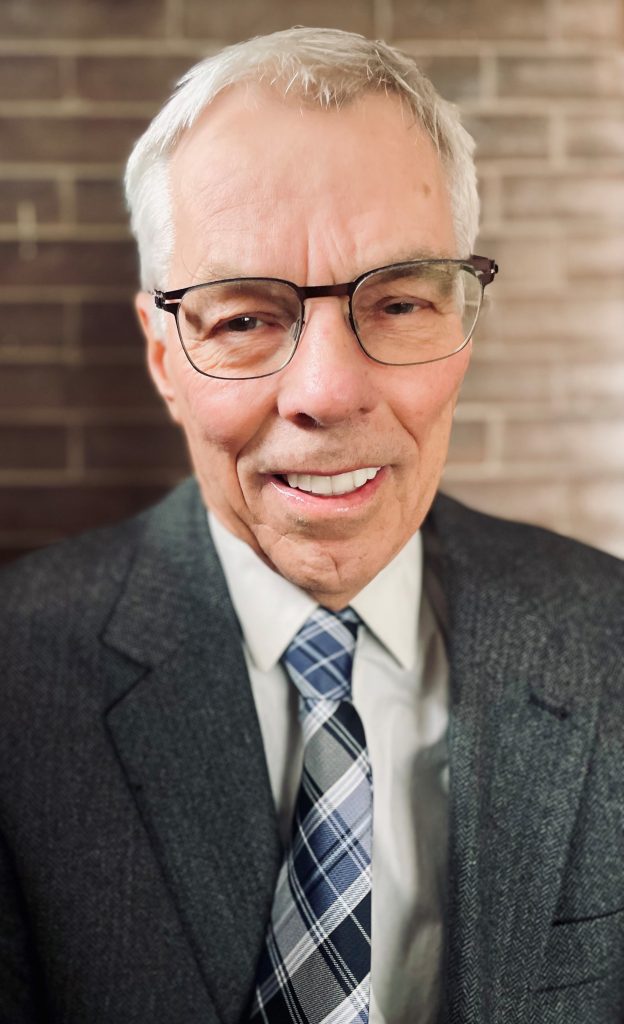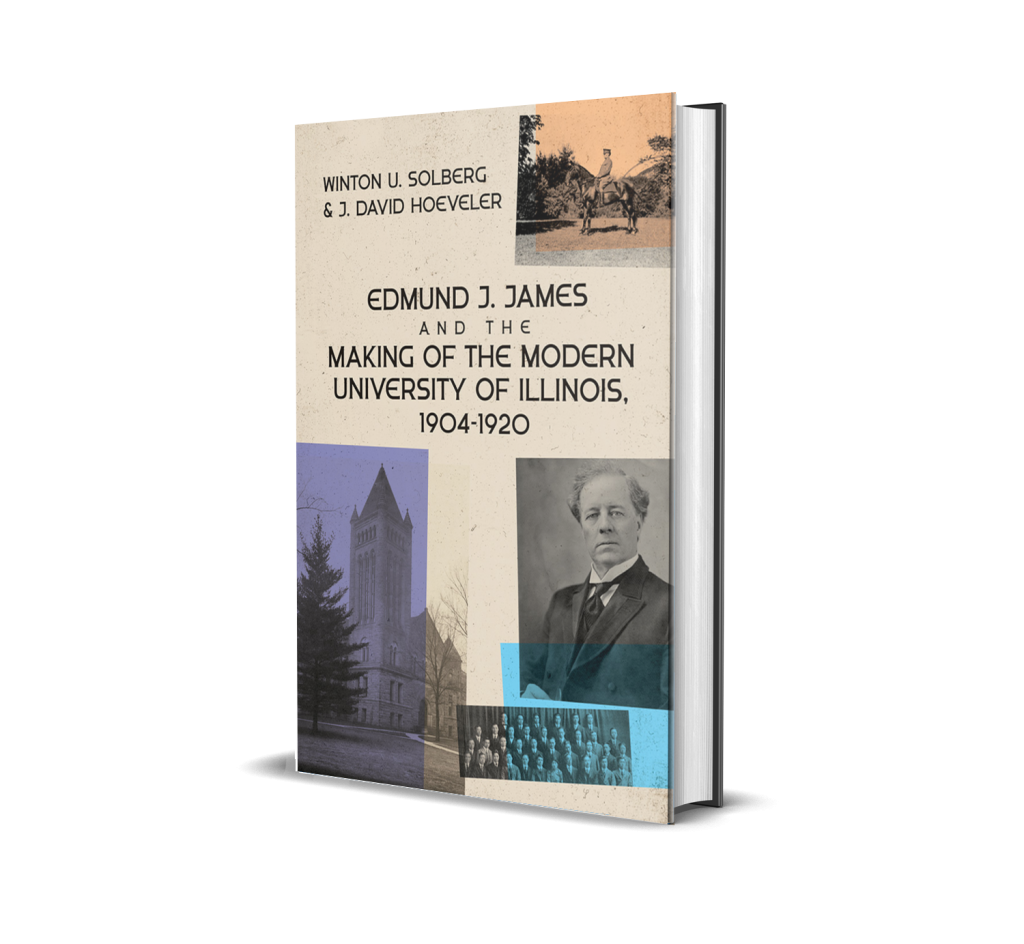J. David Hoeveler, co-author of Edmund J. James and the Making of the Modern University of Illinois, 1904-1920, answers questions on his new book.
Q: Why did you decide to write this book?
Co-authoring this book came to me as an opportunity. Winton Solberg had completed much work on his third volume of the history of the University of Illinois in 2019. But at the remarkable age of 95, he determined that he could no longer pursue this project. He asked me if I could do it. I was Wint’s doctoral student in 1965 when I began work as his research assistant. Since 1971 I had been teaching at the University of Wisconsin-Milwaukee and had just retired. So I experienced the happy irony that I am finishing my career in history where I began it many years ago.
Q: What is the most interesting discovery you made while researching and writing your book?
I added some chapters to Wint’s original manuscript that I wrote myself. I especially enjoyed doing one on students and their activities in this era of “the collegiate revolution,” when campus life everywhere changed dramatically. Along with this one, I wrote one just on women students, discovering some remarkably talented individuals and exploring the gender culture at Illinois.
Q: What myths do you hope your book will dispel or what do you hope your book will help readers unlearn?
We hear much discussion today about the humanities and social sciences and their value as measured against more “practical” or vocational education. I believe readers will be surprised to discover in this book the commitment to liberal education, from President James to deans, and faculty members, even those in the professions. They defended the widest possible learning for all students and did so when the Morrill Act (1862) had raised the priorities of educating farmers and mechanics.
Q: Which part of the publishing process did you find the most interesting?
I liked doing page proofs. It’s satisfying to see your long efforts at writing and editing chapters all transfigured–book design, typeface, pictures.
Q: What is your advice to scholars/authors who want to take on a similar project?
When I started graduate school in history I had no idea that the history of higher education could interest me so much, how intellectually rewarding it is. My first week in the University Archives, working for Wint Solberg, quickly made me aware.
Q: What do you like to read/watch/or listen to for fun?
When I started graduate school in history I had no idea that the history of higher education could interest me so much, how intellectually rewarding it is. My first week in the University Archives, working for Wint Solberg, quickly made me aware.

J. David Hoeveler is a Distinguished Professor Emeritus of history at the University of Wisconsin Milwaukee. His books include John Bascom and the Origins of the Wisconsin Idea and Creating the American Mind: Intellect and Politics in the Colonial Colleges.

